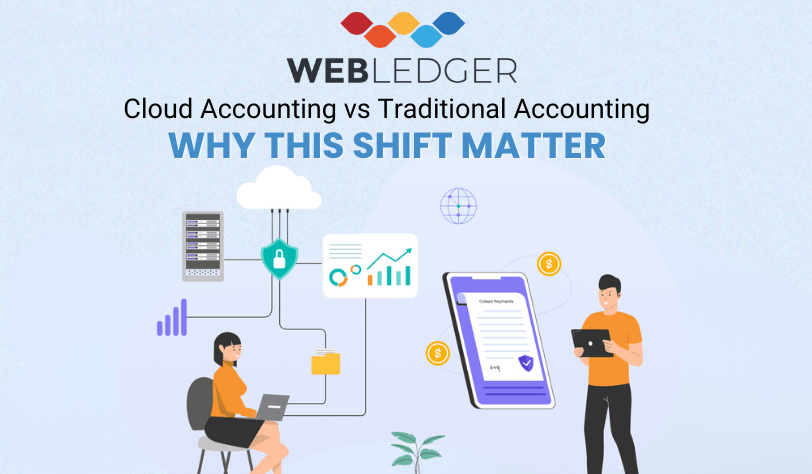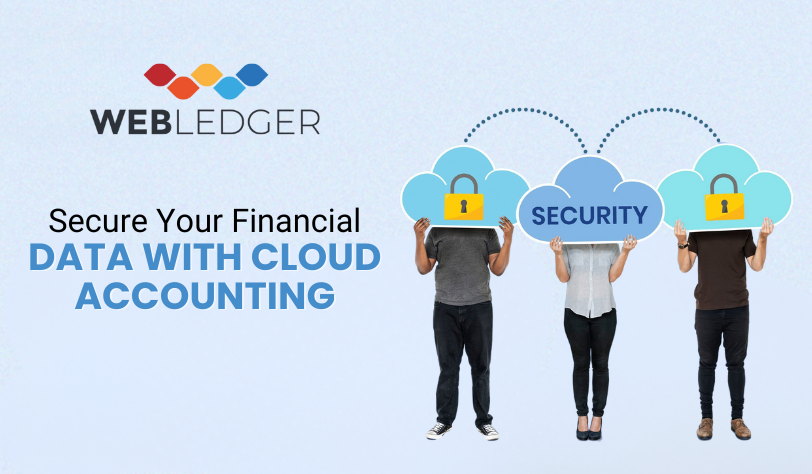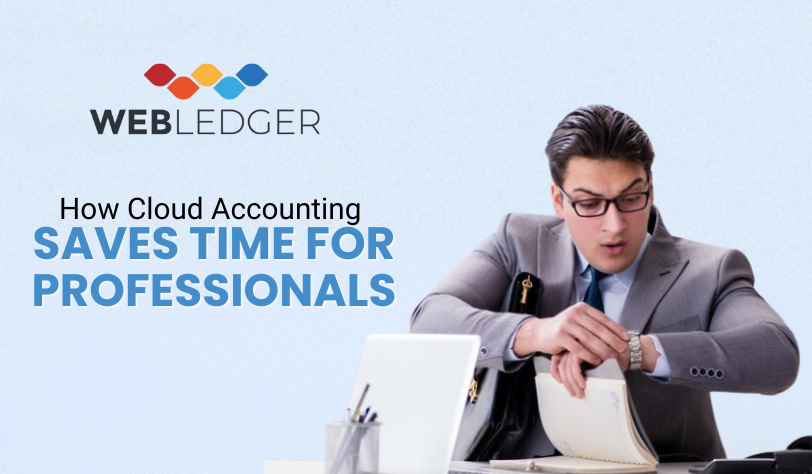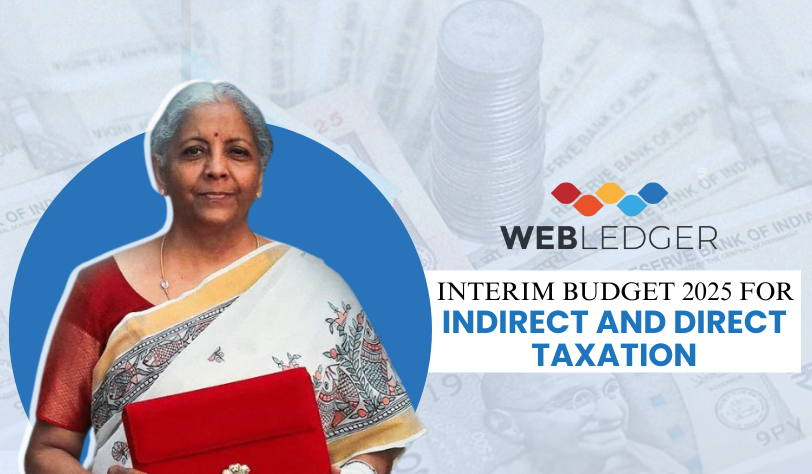Cloud Accounting vs Traditional Accounting
In today’s world, being efficient and easy to access is of great importance. All departments in the company are at this end, especially the finance department. With technological advances, old traditions for accounting have become outdated. Cloud accounting provides remote access, up-to-date data, and easy collaboration while making it a better choice.
It explains the main differences between cloud accounting and traditional accounting and the limitations of traditional accounting. This blog post will show the main differences between traditional accounting and cloud accounting by highlighting the benefits of using cloud-based accounting solutions and why moving to cloud accounting is important for businesses of all sizes.
Understanding Traditional Accounting
In traditional accounting, which is also called manual accounting, documents and spreadsheets are used for actual transactions. Invoices, receipts, and other financial records are consistently kept in paper form or stored locally on computers. This time-honoured method has some drawbacks:
- Physical Limitations: Paper-based records are easily damaged, lost, and misplaced. Accessing specific information is sometimes challenging, especially when large amounts of financial data are involved in business concerns.
- Data Inaccessibility: Traditional accounting systems often limit access to financial data to one location or a few users. This can hinder collaboration and make it challenging for remote teams or stakeholders to access real-time financial information.
- Error-Prone: Manual data entry is a long and error-prone process. Even minor errors can result in major differences between financial statements.
- Low Scalability: Traditional accounting systems are normally not flexible, and it becomes highly difficult to use their scalability in the growth requirements of a business. Storage capacity scaling up or adding more users is highly complex and very expensive.
Cloud Accounting
Cloud accounting, on the other hand, uses the internet to make financial management easier and accessible. Financial data is captured on remote servers and people in authorised positions can get and update the information via any device connected to the internet. This means no hard copies are needed and easy collaboration between the accountant, bookkeeper, and anybody else involved at any point in time.
Advantages of Cloud Accounting
Cloud accounting has a wide range of advantages over traditional methods of accounting, making it of great interest to businesses looking for ways to better streamline their finances. Here’s a closer look at some of the key advantages:
- Easy Accessibility: Cloud accounting software enables access to any financial information from anywhere in the world at any given time. This flexibility equips the business owner or the finance team with the ability to make informed decisions in real-time.
- Effective Collaboration: Cloud accounting provides easy collaboration of the professionals like CAs, CSs, CMAs, accountants, bookkeepers and all other authorised personnel. Multiple users can access or update financial records simultaneously to work with the information latest.
- Real-Time Data: Cloud accounting systems provide real-time insights into a company’s financial health. Users can view up-to-date reports, track cash flow, and monitor key metrics without waiting for manual data entry and reconciliation processes.
- Automated Tasks: Cloud accounting software automatically executes several routine jobs such as data entry, generating invoices, and making bill payments. It leaves time for accountants and bookkeepers for higher strategic financial analysis and planning.
- Scalability and Cost-Effectiveness: Due to their high scalability, cloud accounting solutions can be effortlessly adjusted to accommodate the expanding requirements of a business.There’s no need to invest in expensive software and hardware upgrades, as cloud providers handle all the infrastructure maintenance. Besides, cloud-based subscriptions are usually more cost effective than traditional accounting software licenses and other modern accounting tools.
- Security and Reliability: Cloud accounting firms have good security measures in place to protect all kinds of financial data. Proper backup systems along with disaster recovery systems ensure the safety of the most important business information.
- Integration with Other Tools: Most cloud accounting software integrates quite well with other business solutions, like CRM solutions, e-commerce solutions, and payroll solutions. This creates streamlined workflows along with the automated transfer of data across different types of software.
Why the Shift to Cloud Accounting Matters
In this highly competitive world of business today, efficiency and agility are the doors to success. Cloud accounting powers businesses to achieve exactly these goals of modern, flexible, and accessible financial management solutions. Here is why the shift to cloud accounting matters.
- Better Decision Making: Having real-time access to financial data allows businesses to make knowledgeable choices that can significantly impact their profitability. Cloud-based accounting offers visibility into cash flow, profit margins, and other essential metrics, helping companies recognise opportunities and enhance their financial performance.
- Better Internal and External Teams Collaboration: cloud accounting improves the better collaboration between internal and external teams working on the tasks. The groups of accountants, tax advisers, and other investors can utilise the real time data sharing features. In this, the people may make the right judgments, and enhance communication.
- Increased Productivity: Most of the monotonous jobs are being automated, freeing more valuable time in doing strategic financial analyses and planning by the bookkeepers and accountants.
- Decreased Costs: Cloud accounting services tend to cost less than old school accounting programs. The business IT cost can drop by a whole percentage because one is not required to use expensive equipment, software licences, as well as long term maintenance practices.
- Improved Compliance: Cloud accounting software often includes built-in compliance features, such as automated tax calculations and reporting. This helps businesses stay compliant with relevant regulations and avoid costly penalties.
- Greater Security: Cloud providers invest heavily in security measures that safeguard sensitive financial information from unauthorised access and cyber-attacks. This allows business organisations a much higher level of security than they could possibly obtain individually.
- Better Customer Service: Most cloud accounting software has features of customer support, such as online help resources, FAQs, and access to knowledgeable support staff. This ensures that businesses have the support they need to effectively use the software and solve any issues that may arise.
Selecting the Right Cloud Accounting Solution
Deciding on which cloud accounting solution is appropriate for the firm seems unavoidable with the vast number of available solutions. Here are a few considerations.
- Size and Industry: The requirements of your business change with the size, industry, and complexity of that business.
- Features and Functionality: Analyse the features and functionality of different cloud accounting solutions to determine if they align with your particular needs. These could include the functionality for generating invoices, tracking expenses, bank reconciliations, payroll processing, and reporting.
- Integration Capabilities: Determine if the cloud accounting solution is well integrated with other business applications that you use in your organisation, such as CRM systems, e-commerce platforms, and payroll software.
- Scalability and Pricing: Choose a solution which could scale with your business and has flexible pricing to fit your budget.
- Customer Support: Check how well the vendor supports customers. This includes looking at how available they are, how quickly they respond, and what resources they provide for information and help to the customers.
Conclusion
Switching to cloud accounting is no small deal; it is a real change in business: how it handles its finances. Businesses can really gain much using cloud-based solutions by working more efficiently and being more productive and better-making decisions.
Though some time and effort is needed to be determined at the start of an implementation of cloud accounting, the long-term benefits are greater. This contemporary manner of managing finances has caused operations to be relatively easy while helping minimise costs and increase business success in today’s fast-paced competitive market.





